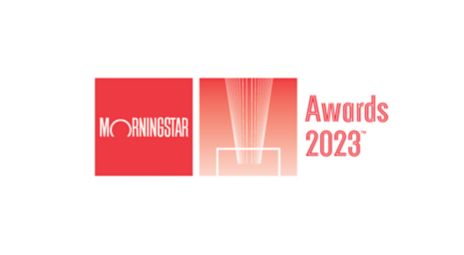Mutual funds
A mutual fund is for anyone who wants to save for some time. Mutual funds offer better returns than a bank account.

Just as easy as saving in an account
Minimum purchase only NOK 100
Full overview of your savings with the savings app Spare
Mutual funds can easily be bought in the online bank on a computer or in the Spare app.
Our mutual fund packages
With mutual fund packages you invest in multiple DNB funds at the same time, and therefore spread the risk. The packages have different profiles, so you can find the mutual fund package that suits you
DNB Spare 30
- Better return than a savings account
- 30% shares and 70% fixed-income securities
- Annual cost 0.35%
- Recommended savings time: three years or more
- Buy DNB Spare 30
DNB Spare 50
- Moderate return with moderate risk
- 50% shares and 50% fixed-income securities
- Annual cost 0.35%
- Recommended savings time: three years or more
- Buy DNB Spare 50
DNB Spare 80
- Higher return with moderate to high risk
- 80% shares and 20% fixed-income securities
- Annual cost 0.35%
- Recommended savings time: six years or more
- Buy DNB Spare 80

DNB Spare 100
- High return with high risk
- 100% shares
- Annual cost 0.35%
- Recommended savings time: six years or more
- Buy DNB Spare 100
What is a mutual fund?
A mutual fund is a collection of securities that are put together as one package. You can buy shares in the mutual fund. The portfolio manager uses the money you and other mutual fund savers put into the fund to buy securities for the fund.
- A mutual fund can own from 16 to several hundred different securities.
- A mutual fund can buy shares, bonds and other fixed-income securities.
- The larger the proportion of shares in a fund, the higher the risk and return you can expect.
- The risk and the possible returns are lower the more fixed-income securities there are in a mutual fund.

A mutual funds is suitable for savings for children, because it’s a long-term fund.
Why save in a mutual fund?
Savings in mutual funds using equity funds are long-term savings schemes that are ideal when you are going to put the money aside for at least six years. For example, mutual funds are perfect for savings for children throughout their childhood, or for retirement.
How can I buy a mutual fund?
There are several ways to buy a mutual fund. We recommend everyone to starting saving schemes in mutual funds – that way saving in mutual funds happens automatically.
You can easily buy mutual funds:
- In the Spare app
- in the online bank
- From others who sell mutual funds
Find the fund that’s best for you and click on ‘buy’.
Before you choose a mutual fund, you should spend some time reading about the different ones, seeing what they’re investing in, as well as the risk and return opportunities they offer. Also check the recommended time horizon.
Information about different types of mutual funds
What is the difference between an equity fund and an index fund?
Index funds are also equity funds, but are managed in a different way. As professional equity fund managers, we usually say that mutual funds are actively managed, while index funds are passively managed. This means that the manager of an active equity fund picks shares based on what he or she thinks will give the best return. In an index fund, the manager buys the shares listed in an index, without deciding which shares will produce the highest profit.
Costs are lower for index funds than for actively managed funds.
DNB won Morningstar Fund Awards
More information


Pricing model for mutual funds
Here you’ll find all the information about the pricing model for mutual funds.
Mutual fund changes
See more information about significant changes to funds that we distribute.
Forms
We have gathered all of the purchase forms and other forms onto one page.

Classification of mutual funds
Read more about how you can compare financial products from a sustainability perspective.

Are you looking for advisory services?
Find out which type of savings is right for you. Order advisory services for savings to get personal advice.
Mutual funds FAQs
Annual costs report for your mutual funds FAQs
Historical returns are no guarantee of future returns. Future returns will depend, among other things, on market developments, the skill of the Portfolio Manager, the mutual fund’s risk, and the management costs. Returns may be negative as a result of mark-to-market losses.
Compare our prices with other companies at Finansportalen.no.
Sustainability in mutual funds and in our advice

SFDR is the regulation in the EU action plan for sustainable finance. SFDR ensures that financial institutions publish their financial products’ investment strategy, investment objectives and actual investments.
Our mutual fund products
Equity fund
For people who want to save long term and can tolerate fluctuations
Index fund
Equity fund for people who prioritise low costs
Balanced fund
Balanced fund invests in both fixed-income securities and shares
Fixed-income fund
Mutual fund that invests the money in fixed-income securities
Mutual fund with sustainability profile
Mutual fund with a focus on climate, environment and the oceans.
Gift fund
Give a gift that can grow in value, minimum amount NOK 100
DNB Lev Mer
Good balance of equities and fixed-income securities, adapted to age bracket
Individual pension savings (IPS),
Fixed savings with tax deferral
Share savings account
Makes it easier for you to save in shares and equity funds
Investment account
Access to both securities and mutual funds in the same solution
Downloadable forms
We have gathered all of the forms onto one page
